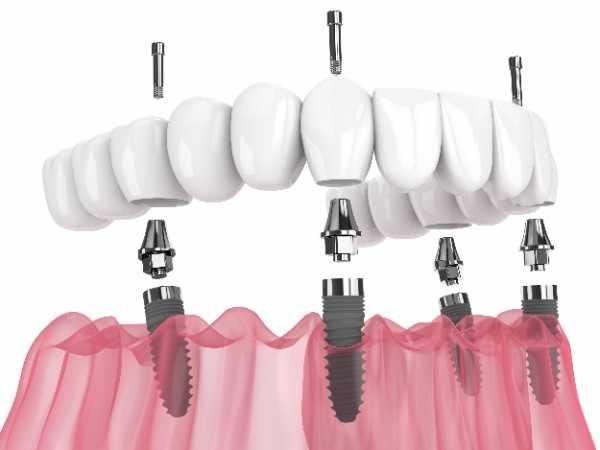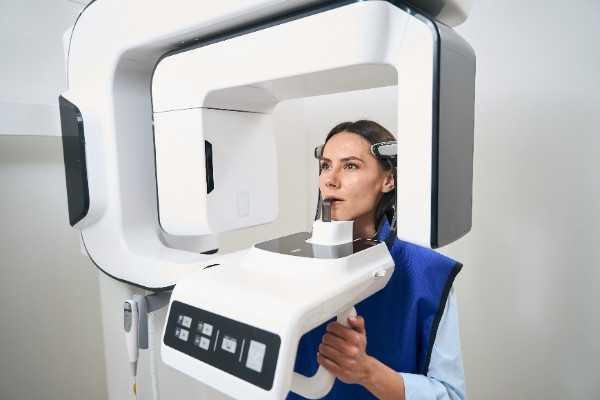Dental implants have revolutionised tooth replacement, providing a solution that combines function, comfort, and aesthetics. Unlike traditional dentures or bridges, implants fuse with the jawbone to create a stable foundation that looks and feels natural. They allow patients to chew comfortably, speak clearly, and smile confidently, making them a long-term investment in oral health and self-esteem.However, the success of dental implants depends largely on the care they receive. Neglecting daily hygiene, lifestyle habits, or professional check-ups can lead to complications, reducing the lifespan of your implant and affecting overall oral health.
Why Proper Care for Dental Implants is Essential
Dental implants are crafted from durable materials such as titanium and porcelain, yet they are not maintenance-free. The surrounding gum tissue and jawbone are vital for implant stability and longevity. Without careful attention, the following risks can compromise your implant:
- Peri-implantitis: A gum infection that can cause bone loss and jeopardise implant stability.
- Gum recession: Exposes the implant post, affecting both aesthetics and support.
- Bone deterioration: Weakens the foundation of the implant, increasing the risk of failure.
- Mechanical damage: Cracks or loosening due to excessive pressure, teeth grinding, or trauma.
Consistent care habits protect your investment, maintain oral health, and ensure your smile remains attractive and secure.

Daily Oral Hygiene Habits for Implant Longevity
Maintaining strong daily oral hygiene is essential for implant health. Treat your dental implants as you would natural teeth, paying close attention to areas where plaque and bacteria can accumulate.
Essential daily habits include:
- Brushing twice daily: Use a soft-bristled toothbrush and low-abrasive toothpaste to protect crowns and gums.
- Flossing once daily: Use implant-safe floss or interdental brushes to remove plaque between the implant and adjacent teeth.
- Antimicrobial mouthwash: Reduces harmful bacteria and helps prevent gum inflammation.
- Tongue cleaning: Reduces bacterial buildup that could affect implants and natural teeth.
By following these steps consistently, patients can prevent infection, protect supporting structures, and preserve the integrity of the implant.
Professional Care: Dental Visits and Follow-Ups
Even with diligent at-home care, professional check-ups are vital to detect potential issues early. For patients who have undergone a dental Implant Cheltenham procedure, regular dental visits are particularly important during the first year.
During appointments, your dentist may:
- Examine implants for signs of wear, loosening, or damage.
- Assess gum and bone health surrounding the implant.
- Perform professional cleaning to remove plaque and tartar.
- Provide personalised guidance on brushing and care techniques.
Visiting an Emergency dentist in Cheltenham promptly in the case of pain, swelling, or sudden mobility of the implant can prevent minor issues from escalating. Typically, six-monthly check-ups are recommended to ensure the implant remains in optimal condition.
Lifestyle and Dietary Habits That Impact Implant Lifespan
Diet and lifestyle choices play a significant role in maintaining dental implant health. Some habits enhance longevity, while others can undermine implant stability and overall oral wellbeing.
| Supportive habits | Risky habits |
| Eating calcium-rich foods | Chewing hard objects (ice, pens) |
| Staying hydrated | Excess sugary or sticky snacks |
| Avoiding smoking | Smoking or vaping |
| Limiting alcohol intake | Excessive alcohol consumption |
| Practising stress reduction | Teeth grinding (bruxism) |
Making mindful choices in daily routines helps protect implants, reduces the risk of damage, and supports oral health over time.
Managing Teeth Grinding and Physical Impact
Bruxism, or teeth grinding, along with high-impact activities, can damage dental implants if preventive measures aren’t taken. Excessive pressure may loosen or crack implants over time.
Preventive strategies include:
- Wearing a custom nightguard to absorb grinding forces.
- Practising stress-reduction techniques such as yoga or meditation.
- Avoiding chewing hard objects like pens or ice.
- Using a mouthguard during contact sports or high-impact physical activities.
These simple measures shield implants from unnecessary stress and preserve their function, ensuring comfort and longevity.
Tools and Products That Support Implant Care
Beyond traditional brushing and flossing, specialised products can help maintain implant health, particularly in hard-to-reach areas.
Recommended tools:
- Water flossers: Effectively remove food debris and plaque.
- Interdental brushes: Gently clean between implant crowns and natural teeth.
- Implant-specific toothbrushes: Angled bristles allow better access around implants.
- Low-abrasive toothpaste: Minimises wear on crowns while maintaining cleanliness.
Incorporating these tools adds an extra layer of protection, helping your implants remain in excellent condition for years.
Recognising Early Warning Signs of Implant Problems
Early detection is key to preventing implant failure. Many complications begin subtly but worsen if left unaddressed.
Warning signs to watch for:
- Red, swollen, or bleeding gums around the implant.
- Persistent bad breath or unpleasant taste.
- Pain or discomfort while chewing.
- Loosening or movement of the implant.
- Receding gums exposing the metal post.
Promptly consulting an Emergency dentist in Cheltenham can prevent minor issues from escalating, safeguarding both oral health and the longevity of your dental implant Cheltenham.
Protecting Implants During Travel and Daily Routines
Dental implants are generally resilient, but lifestyle changes, travel, or busy routines can introduce new risks. Proper planning helps maintain oral hygiene and reduces stress on implants.
Smart habits include:
- Carrying a travel-sized toothbrush and floss when away from home.
- Rinsing after meals if brushing isn’t immediately possible.
- Avoiding sudden dietary changes that may stress the implant.
- Scheduling check-ups before and after long trips if needed.
Being proactive ensures implants remain strong and functional, regardless of lifestyle changes or travel.
Long-Term Benefits of Proper Implant Care
Maintaining dental implants properly goes beyond preserving function it improves overall oral health and quality of life.
Key benefits include:
- Extended lifespan: Implants can last for decades with proper care.
- Reduced risk of infection: Healthy gums and supporting structures.
- Enhanced comfort and function: Improved chewing and speech clarity.
- Preserved jawbone and facial aesthetics: Prevents bone deterioration.
- Cost savings: Avoids premature repairs or replacements.
Well-maintained implants allow you to enjoy a confident smile, eat without concern, and speak comfortably, enhancing both appearance and self-esteem.

Conclusion
Dental implants are a remarkable investment in oral health, but their longevity relies on consistent care, professional guidance, and mindful lifestyle choices. By maintaining a daily hygiene routine, attending regular dental check-ups, and protecting your implants during physical activities, you can safeguard your smile for decades. Early attention to potential issues ensures implants remain secure and functional, reducing the risk of complications. Combining proactive habits with professional oversight creates the ideal foundation for long-lasting implant success.

